Please check the University’s course catalog for more information on which quarter each course will be offered.
SPAN 154A Basque Language and Culture
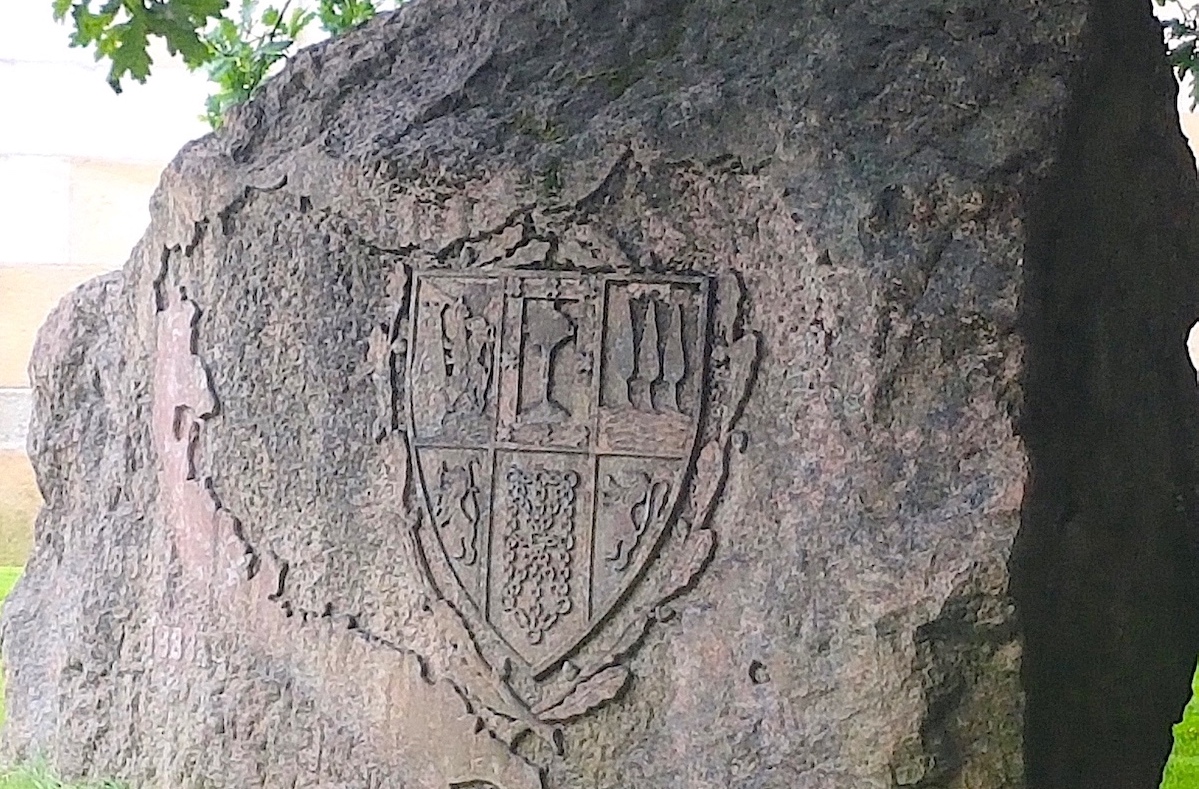
Euskara is one of the oldest living languages in Europe. Currently, it is actively spoken by 32% of Basque people, so there are about 700,000 euskaldunak, a Basque word meaning “Euskara speakers,” who live in the seven Basque territories located on both sides of the Pyrenees. These statistics do not take into account the number of Basque speakers outside the Basque Country, a group of which students in this course will become a part. Indeed, the main goal of this course is to provide students with basic communication skills in Basque (listening, speaking, reading, and writing) as well as to offer a brief introduction to Basque culture.
Photo: Cote of arms of the Basque Country carved on a stone, the Assembly House of Gernika (Bizkaia).
SPAN 154B Basque Language and Culture
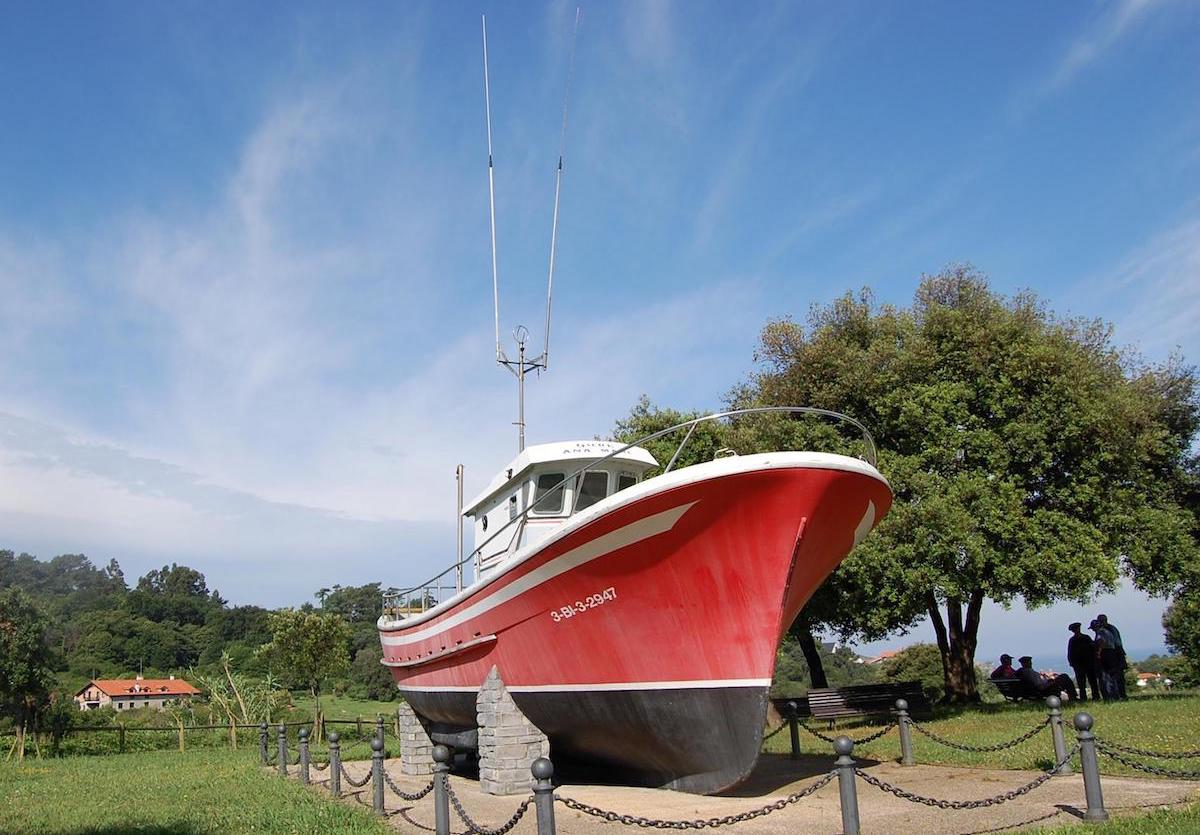
This course is a continuation of Basque Language & Culture I (SPAN 154A). SPAN 154B is a further study of Basque language and culture. It continues to build Basque vocabulary, grammar, and general communicative competence. It also stresses training in reading and writing short essays, and in enhancing spoken skills necessary for a variety of a daily activities.
Photo: Retired ship in Gorliz (Bizkaia).
SPAN 154C Basque Language and Culture
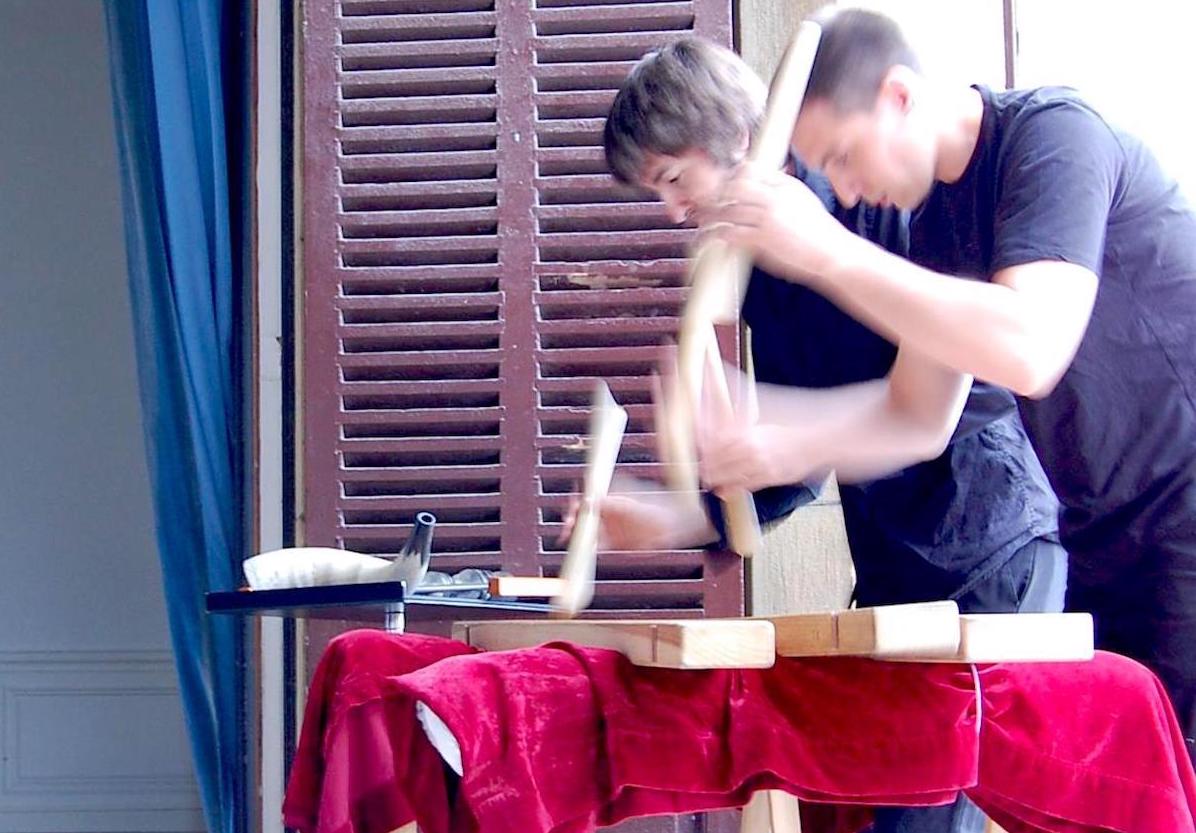
This course is a continuation of Basque Language & Culture I (SPAN 154A) and of Basque Language & Culture II (SPAN 154B). It continues to build Basque vocabulary, grammar, and general communicative competence. It also stresses training in reading and writing short essays, and in enhancing spoken skills necessary for a variety of a daily activities.
Photo: Txalaparta demonstration.
SPAN 153E Basque Studies

This course offers an overview of the historical, social, and cultural characteristics of the Basque Country. It adopts an intersectional approach to understanding the heterogeneity and complexity of Basque identity while analyzing how minoritized groups such as the Basque negotiate their identity in the face of globalization.
Photo: Guggenheim Museum Bilbao.
C LIT 186A / SPAN 186AA Moving Bodies: Stories of Migration
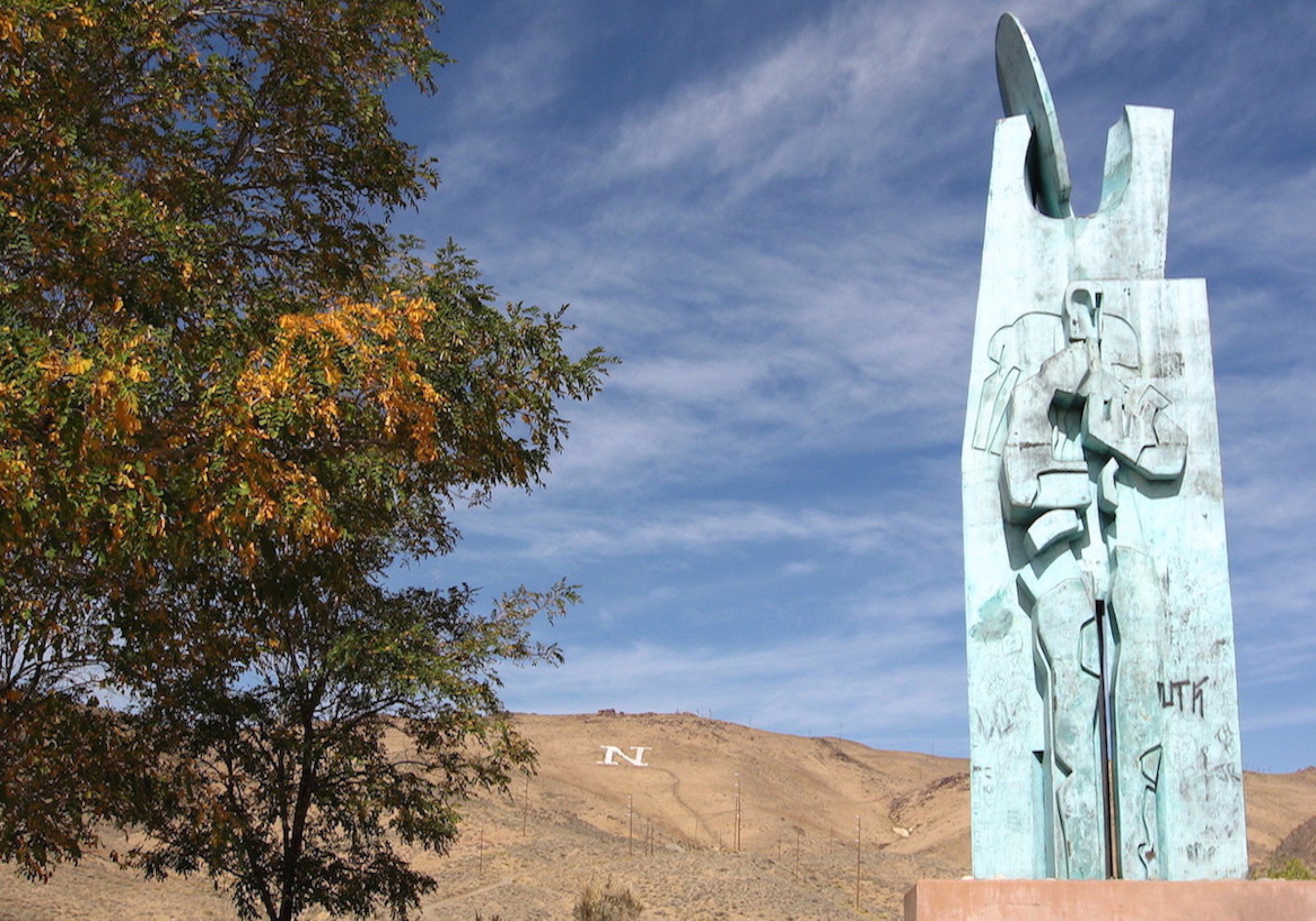
This course analyzes the experience of migration and diaspora formation by comparing how the Basque settled in the American West to the experiences of other migrant groups. In this course we will read stories and watch films that will help us analyze and better understand the contexts in the migrants’ country of origin which prompt them to leave, the experience of migration itself, the mixed reception migrants may receive in the country of arrival, and the sense of rootlessness and the search for identity which can result from displacement.
Photo: Monument to the Basque sheepherder by Nestor Basterretxea in Reno, Nevada.
C LIT 186B / SPAN 183B Gender in Basque Culture
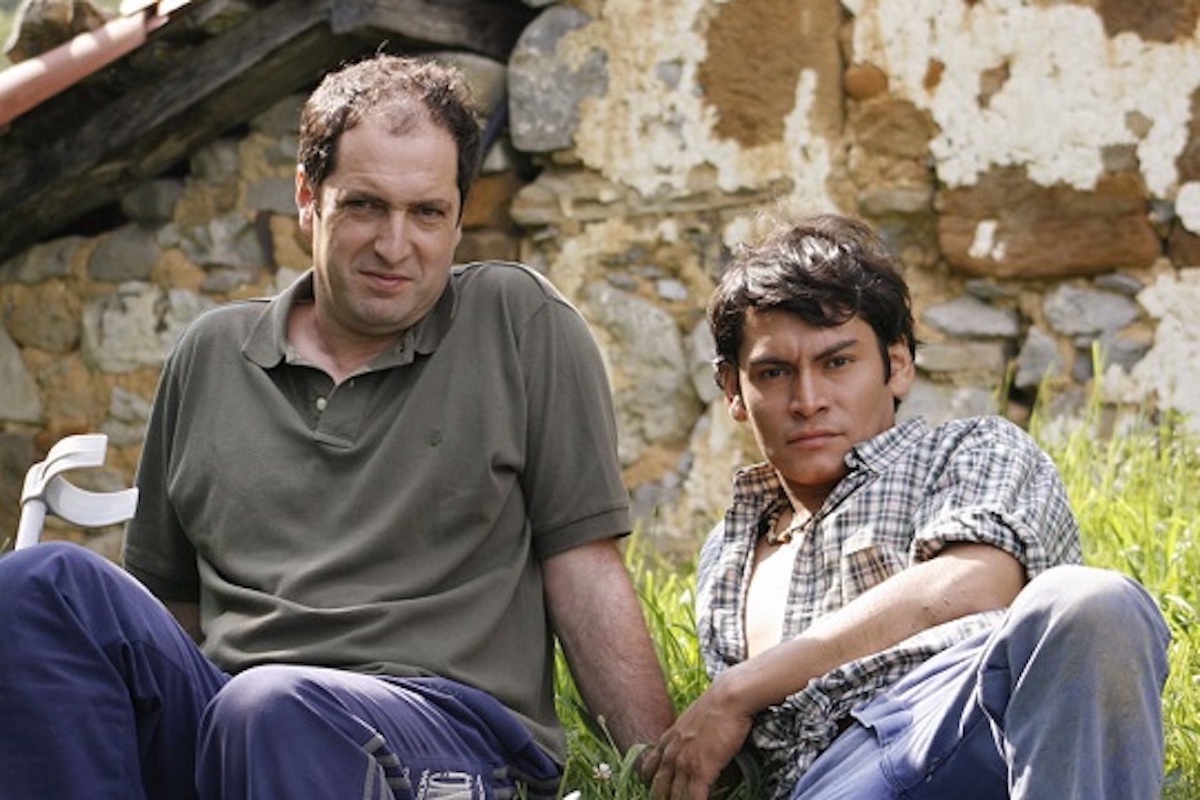
Using the Basque Country as a case study, this course explores the ways in which literature and film reflect, influence, and reveal cultural beliefs about gender and sexuality. We will analyze a wide range of literarty and cultural texts and films; we will also study seminal essays in feminism and queer studies. Throughout the course, we will explore the ways in which gender intersects with other crucial aspects such as race / ethnicity, sexual orientation, class, age, religion, and citizenship / national identity and belonging.
Photo: Screenshot from Ander (2009), a film by Roberto Caston, courtesy of Berdindu.
C LIT 186E / SPAN 183E Conflict, Memory & Cultural Production
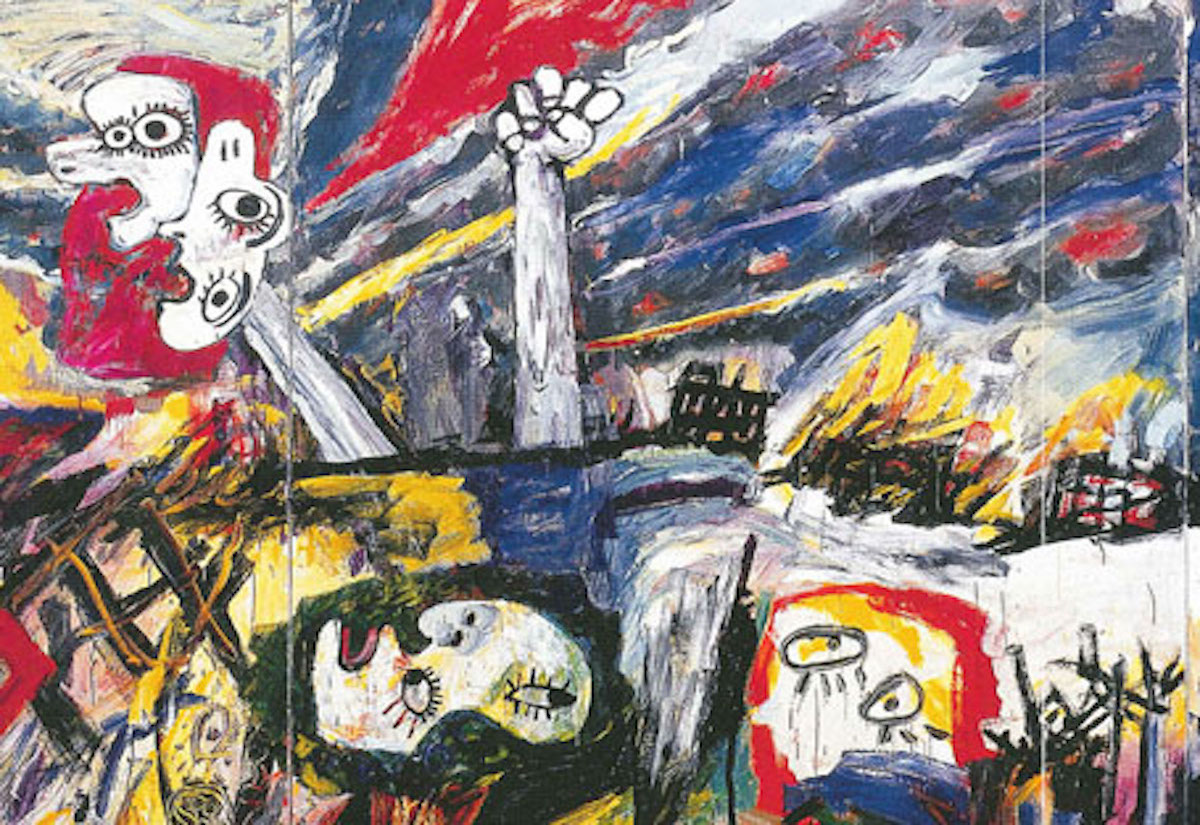
This course explores the connection between conflict and memory in Basque cultural production. How do literature and film engage and/or create memory narratives of war and violence? To what extent do these narratives offer a counter-narrative to hegemonic histories? How does fiction recreate, revise, and re-examine the past? This course will address these questions by tracing the interconnections between memory and literature through the analysis of novels, poems, short stories, films, and visual art. As such, the course opens onto a wide range of topics, including but not limited to: the relation between the literary text and the history text; the question of silenced, repressed or invisible histories; discourses of trauma; forgetting and nostalgia; death and commemoration.
Photo: Gernika (1999) by Basque painter Jose Luis Zumeta, detail.
C LIT 186CC / SPAN 183IA Basque Film
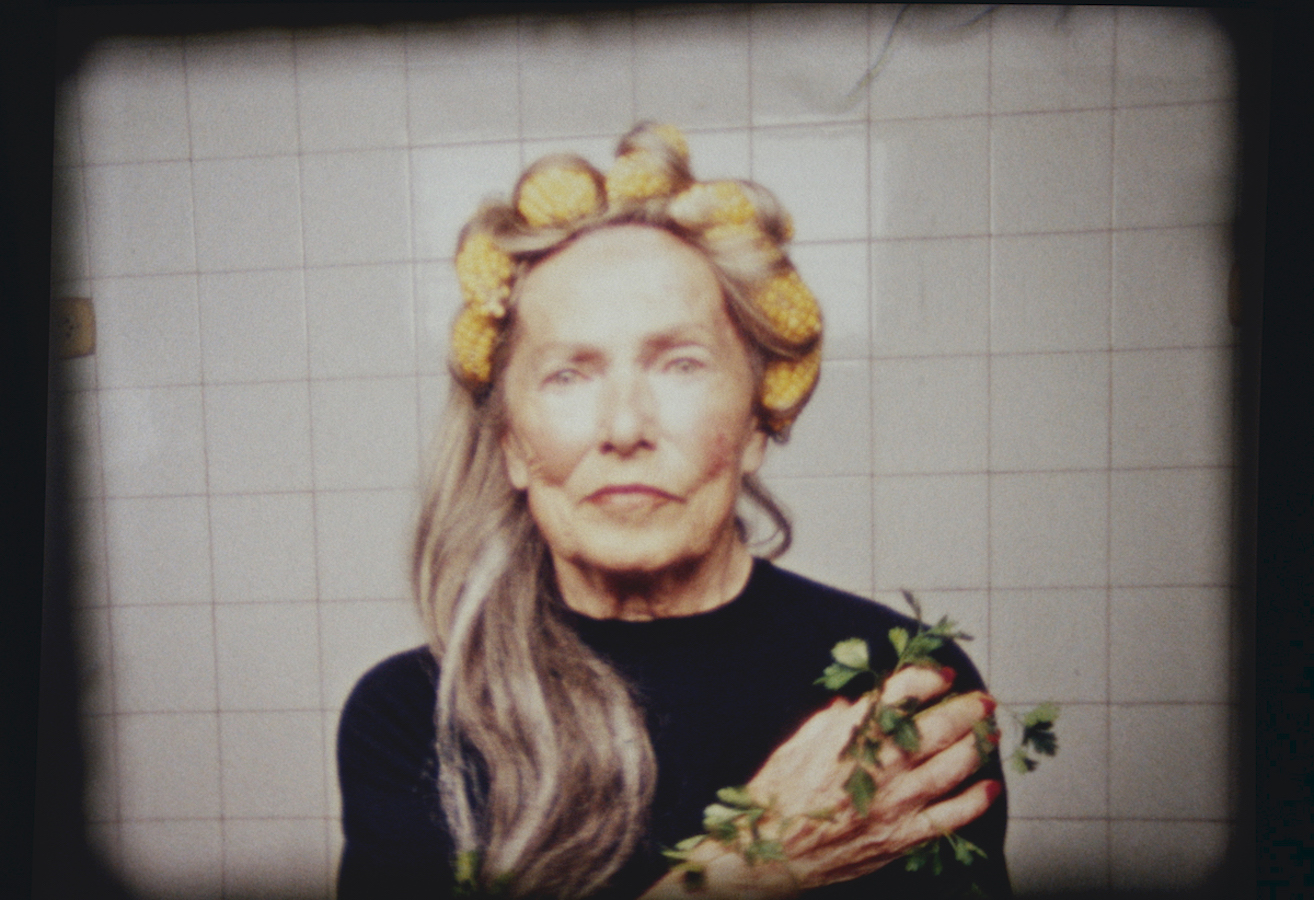
This course offers an overview of Basque film from the second half of the 20th century to the present. Through the study of a selection of films and critical texts on contemporary issues, this course will provide a critical examination of the history and poetics of cinema in the Basque Country, with particular attention to questions of identity (along the axis of ethnicity, race, gender, sexuality, ability, and class), the nation, political conflict, and globalization, among other themes.
Photo: Screenshot from Amama (2015), a film by Asier Altuna, courtesy of Txintxua Films.